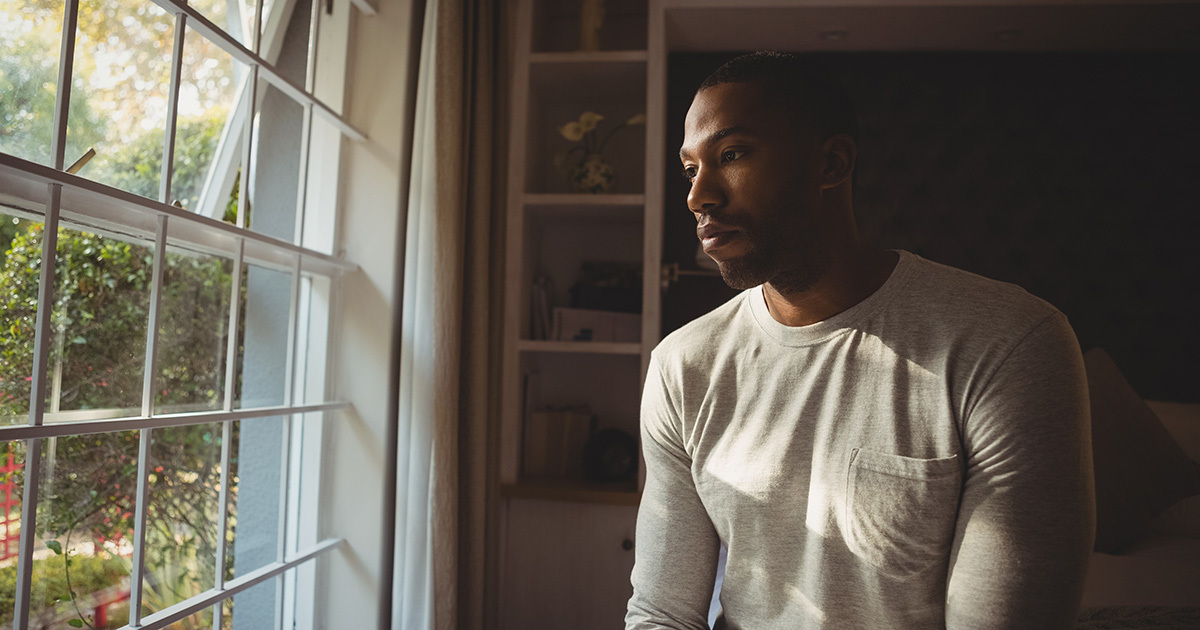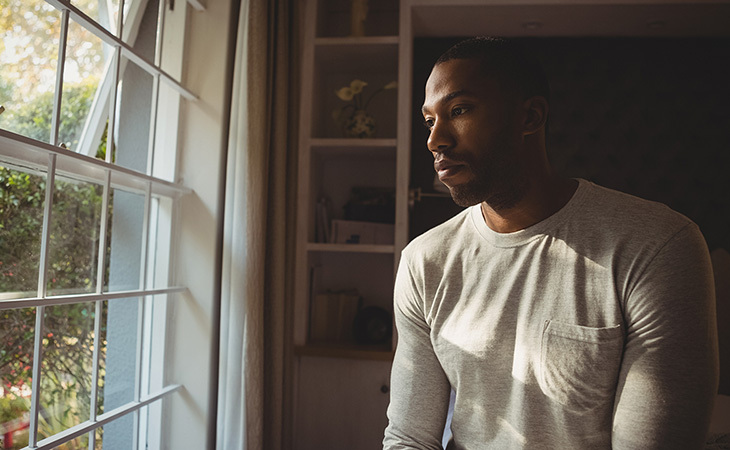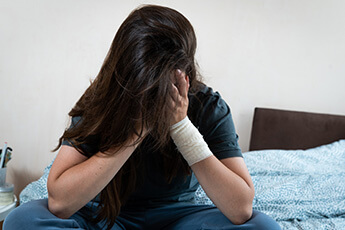How to get support for depression—suggestions from real people

Whether you've got a formal depression diagnosis or simply feel down, seeking support for your wellbeing is an important step in feeling better. But understanding the challenges and barriers to finding support, then making a plan to find the right support you need, can feel like a big undertaking.
In the Inspire Mental Health Community, members share their personal experiences of living with depression and how to find support. This content should not be used as a substitute for professional medical advice, diagnosis, or treatment. As always, consult with your doctor before trying any new treatments or medications.
To access more discussions about depression and many other mental health conditions, and to participate with other members including patients and their friends and families, join the Inspire Mental Health Community today.

Why is it sometimes hard to get support if you're depressed?
Some of the challenges to getting depression support are internal, like denial, feelings of hopelessness and helplessness, or beliefs about treatment. Other barriers include stigma around mental health issues, lack of awareness of resources, and financial challenges. Fortunately, access to mental health support is higher than ever before.
Major depressive disorder is diagnosed when someone has a persistently low or depressed mood, anhedonia (decreased interest in pleasurable activities), feelings of guilt or worthlessness, lack of energy, poor concentration, appetite changes, slow or disrupted movements, trouble sleeping, or suicidal thoughts.
Other reasons for depressive symptoms include grief, bipolar disorder, neurological disorders, medications, nutritional imbalances, and endocrine problems like diabetes, thyroid disorders, or adrenal disorders. Regardless of the cause or diagnosis, some of these depression-like symptoms can make finding support challenging.
Depression can also result in social isolation, which may contribute to worsening of symptoms and increase the difficulty of finding social support. Even though there are a wide range of resources available, it's common for depressed people to feel isolated from loved ones, or to feel like they're a burden on friends and family.
Sometimes, all these factors can combine to make it extremely difficult to feel supported, as this Inspire member has experienced:
“My depression is at an all time low. I've briefly tried talking to a psychiatrist and some meds, no relief. Cannot financially afford to keep trying. My partner of 11 years doesn't understand it and its taking a bigger and bigger toll on our relationship. I feel alone and hurt, he seems to get more and more sick of my unhappiness. Maybe because I'm getting worse at hiding it. I've already isolated myself from other family and friends. I love him and don't want to push myself away from the last person I have and throw my life away. I'm also hurt that it doesn't feel like he takes my depression seriously when I've tried to reach out to him for help. He was raised in the mindset that depression is just a weak mindset and choice. But that's not how it feels for me. How do others struggling with depression deal with maintaining their relationships?” View post
From a partner's perspective, it's often challenging to know how to help a loved one with depression:
“My husband is depressed, became ill, stopped taking care of himself, and, while I was away taking care of first his mother and then my father, simply gave up and laid down and waited for someone to realize he was not responding and come and take him to a hospital. I am now struggling because I will have to go home from taking care of my father and will be faced with this situation.” View post
Getting stuck in self-doubt and blame can make it harder to get the right support:
“I've been really struggling lately with what is now becoming debilitating depression that I feel like no one in my life really wants to understand beyond the point of saying 'you're not trying or try harder' or 'you will get better'. And I do believe people do get better but I'm getting really scared because I don't feel like I have a want to get better anymore, like I've been screaming for help for so long now that my time has passed and I'm just getting worse and worse and just taking a back seat to my ability to do daily task decline at a worrisome rate.” View post
People with mental health challenges often face stigma or shame. If you or someone you love has a mental illness, you’re probably familiar with these concerns. Learn more about coping with stigma around mental health.
The best ways to find support if you feel depressed
Many types of depression support exist, but taking advantage of them isn’t always easy. People with depression sometimes have difficulty asking friends and family for support, and social isolation is a common hallmark of depression. In this section, we'll cover ways to find a support system that works for your needs.
First of all, many people with depression have beliefs and ways of thinking that make it harder to seek support. It's easier said than done, but a big part of getting much-needed support is identifying these beliefs and finding ways to change them so you can get help.
Examples of self-defeating beliefs include hopelessness, worthlessness, not deserving help, feeling like no one cares, or believing that depression treatment is ineffective.
Cognitive-behavioral therapy (CBT) is all about changing beliefs and behavior patterns so you can live a better life. According to the National Alliance on Mental Illness (NAMI), people with mild to moderate symptoms of depression can use self-directed CBT to reduce anxiety as well as depression.
For people who have severe depression, which can make it hard to get out of bed or do basic tasks on bad days, one-on-one counseling is generally a better choice.
During psychotherapy, your therapist provides a safe, supportive environment that allows you to open up about your thoughts and emotions. As you talk through how you’re feeling, your therapist serves as an objective, nonjudgmental sounding board. Learn more about CBT and other forms of psychotherapy.
People with depression sometimes avoid seeking therapy due to financial challenges. Seeing a therapist usually isn't free, but depending on where you live, there may be financial assistance available.
Resources like the NAMI HelpLine website or hotline (800-950-NAMI or 800-950-6264) can help you find affordable or free therapy options where you live. You can also text "HelpLine" to 62640, or email helpline@nami.org for assistance.
You can also find free local resources like peer support groups and group therapy that provide helpful support for people with depression.
NAMI Connection is a support group for people with mental health conditions including depression. Groups meet regularly: weekly, every other week or monthly, depending on location. Many support groups are virtual, and attendance is open to everyone across the country. This program is also available in Spanish (NAMI Conexión).
To connect with a free online depression and mental health support forum and add your voice to the discussion, join the Inspire Mental Health Community today.
Sources
https://www.ncbi.nlm.nih.gov/books/NBK559078/
https://www.nami.org/Blogs/NAMI-Blog/November-2016/Discovering-New-Options-Self-Help-Cognitive-Behav
Disclaimer
Member comments have been lightly edited for length and clarity. This content is for general informational purposes only and does not necessarily reflect the views and opinions of any organization or individual. The content should not be used as a substitute for professional medical advice, diagnosis, or treatment. Please consult your healthcare provider about any questions you may have regarding a medical condition.




